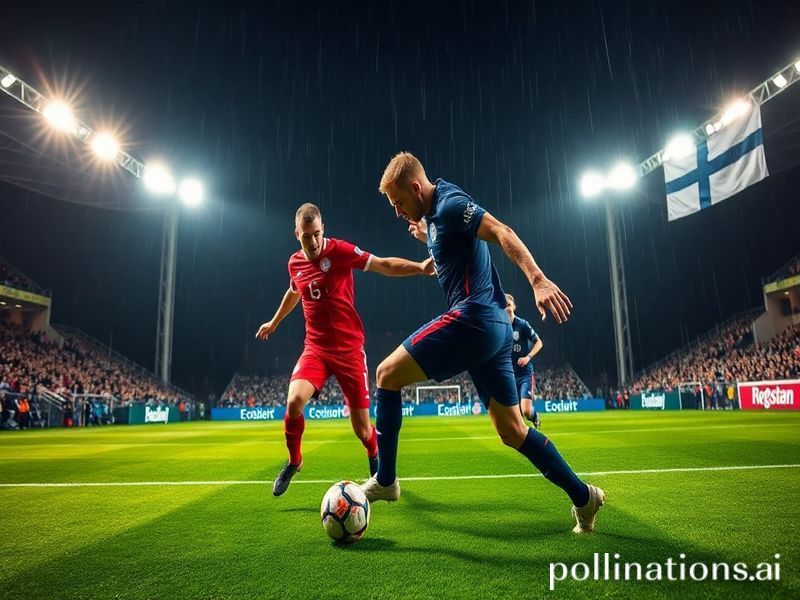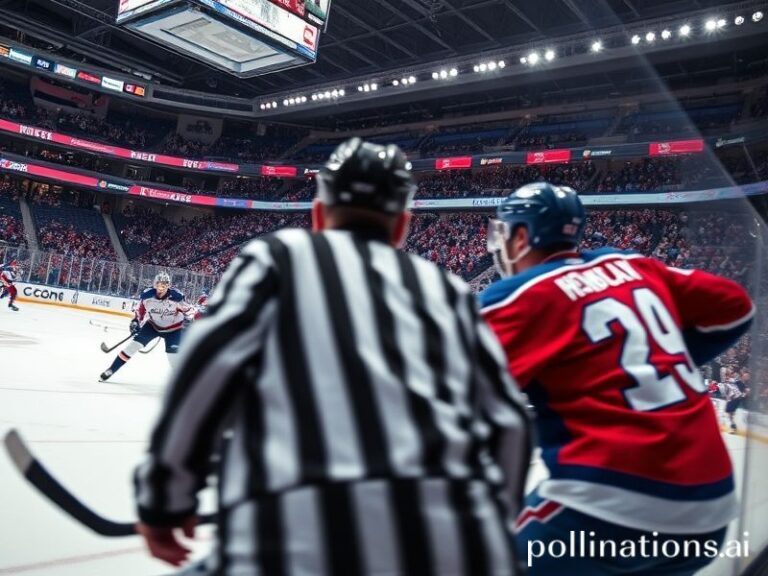Denmark vs Scotland: How a Football Friendly Became the World’s Smallest Proxy War
COPENHAGEN—Somewhere between hygge and haggis, the North Sea has coughed up its latest episode of geopolitical improv: Denmark versus Scotland, a friendly so punctual it could be mistaken for a Swiss train colliding with a Highland stag. The fixture, scheduled for a brisk Parken Stadium evening, arrives just in time for the planet to remember that even micro-nations can perform grand opera when the lights are bright and the beer is Carlsberg.
To the outside world, the match is officially a Euro 2025 qualifier, but let’s call it what it is: a proxy war fought with synthetic leather instead of submarines. Denmark—population 5.9 million, social safety net woven from taxpayer cashmere—lines up against Scotland—population 5.4 million, social safety net woven from Irn-Bru and sheer defiance. Both countries have spent the past decade exporting contradictory national myths: one sells minimalist furniture and guilt-free pastries, the other sells melancholy weather and the persistent belief that Braveheart was a documentary. The rest of us buy both, then wonder why our apartments look like IKEA showrooms soundtracked by bagpipes.
Global Implications, or How to Monetize a Friendly
FIFA rankings treat this as a gentle recalibration of coefficient algebra, but the real stakes are elsewhere. Qatar’s sovereign wealth fund, still laundering reputations one stadium at a time, has quietly placed advertising boards around Parken featuring slogans like “Football Unites.” Somewhere a consultant from McKinsey is billing $3,000 an hour to explain the irony to a sheikh who doesn’t care. Meanwhile, streaming rights have been snapped up by a Silicon Valley start-up whose algorithm has calculated that Danes score goals precisely when hedge funds need emotional catharsis. The algorithm is 83 percent accurate, which in modern finance passes for prophecy.
In Washington, the State Department’s Nordic Affairs desk has produced a classified three-page memo titled “Celtic Frustration as Soft-Power Indicator,” warning that another Scottish loss could push Nicola Sturgeon to tweet something unhelpful about NATO. Across the Yellow Sea, Chinese state media has already drafted a headline: “Small Nations Fight While Giants Build Islands.” The editor will add exclamation marks later.
Human Nature, Condensed into Ninety Minutes
On the pitch, Denmark’s coach, Kasper Hjulmand, will deploy the same 3-4-3 that once made Germany look like a tax audit. Scotland’s Steve Clarke, channeling a thousand years of underdog energy, will respond with five at the back and the existential certainty that fate hates him personally. The subplot: Christian Eriksen, human cardiac comeback story and walking metaphor for Scandinavian resilience, versus Scott McTominay, who looks like he tackles people for fun even in the shower.
The fans—plastic Viking helmets versus kilts in sub-zero wind—will sing at each other in languages neither side understands, united only by the shared conviction that beer tastes better when you can see your own breath. Security has confiscated 47 inflatable Nessies and one live sheep, proving that Scottish innovation remains undefeated.
Broader Significance, for Those Who Overthink Everything
If Denmark win, analysts will cite tactical evolution and societal cohesion. If Scotland win, the same analysts will blame Danish complacency and global warming. Either way, both teams will board carbon-offset flights home, congratulating themselves on raising awareness of something—possibly awareness itself.
And so the world turns, lubricated by television money and national delusion. Tomorrow the headlines will revert to war, inflation, and whatever Elon Musk tweeted at 3 a.m. But for one evening, two small countries will remind the rest of us that flags still matter, songs still sting, and the offside trap remains the most honest form of betrayal humanity has ever devised.
Final whistle blows. Everyone loses a little, except the bookmakers, who win exactly the amount they predicted. The North Sea keeps whispering the same old joke: nations rise and fall, but the fish never bother to pick sides.







